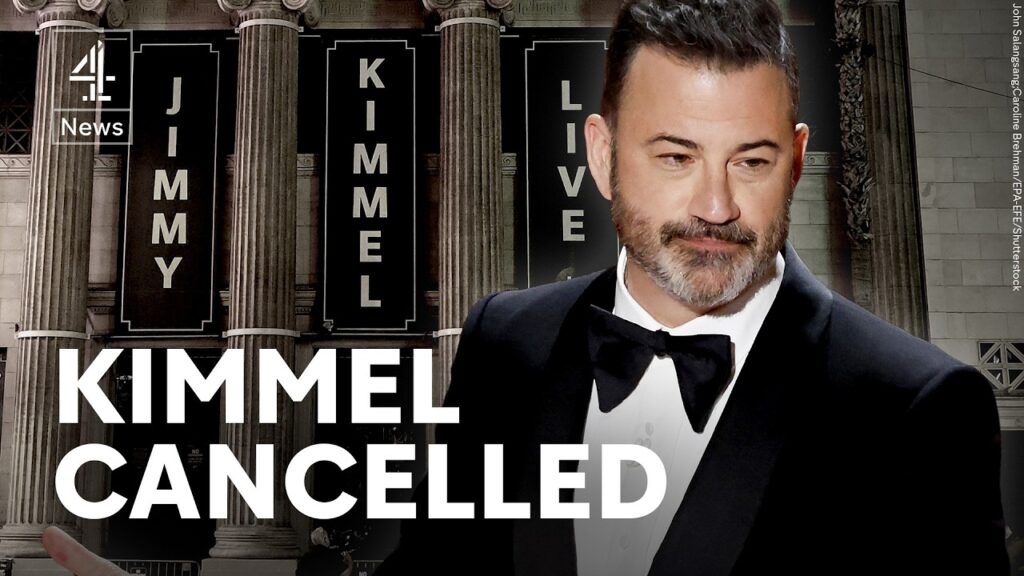
While Jay Leno’s recent comment that “usually, it’s the truth that winds up getting canceled” sounds noble in defense of Jimmy Kimmel, it fundamentally misrepresents what actually happened to the late-night host—and reveals the dangerous conflation of corporate employment with constitutional rights that has poisoned our public discourse.
Jimmy Kimmel wasn’t “cancelled.” He lost a job.
The Reality Behind the Headlines
ABC’s decision to suspend “Jimmy Kimmel Live!” indefinitely following his comments about Charlie Kirk’s assassination represents a straightforward business calculation, not some Orwellian assault on free speech. The network acted after major station groups Nexstar and Sinclair announced they would stop airing Kimmel’s show, and following pressure from FCC Chairman Brendan Carr. This is corporate risk management, pure and simple.
Kimmel remains free to speak his mind on any platform he chooses. He can start a podcast tomorrow, launch a YouTube channel, write op-eds, or stand on a street corner with a megaphone. His First Amendment rights are entirely intact. What he lost was Disney’s multimillion-dollar platform and the accompanying salary—a privilege, not a right.
The Dangerous Equation of Employment with Free Speech
When we frame corporate employment decisions as “cancellation” or free speech violations, we fundamentally misunderstand both concepts. ABC never owed Kimmel a platform any more than Fox News owes one to Rachel Maddow or MSNBC owes one to Tucker Carlson. These are private companies making business decisions about their branded content and the potential financial consequences of controversial statements.
The real danger in Leno’s framing isn’t just its inaccuracy—it’s how it weaponizes victimhood to obscure accountability. When a highly compensated entertainer faces professional consequences for inflammatory remarks, calling it “cancellation” transforms a privileged individual’s career setback into a martyrdom narrative that conveniently sidesteps any discussion of whether those remarks were appropriate, accurate, or defensible.
Following the Money Trail
The most telling aspect of this entire episode is what it reveals about the relationship between wealth and “free speech” in America. Kimmel’s suspension generates outrage and solidarity statements from Hollywood precisely because he was well-compensated and well-connected. Meanwhile, countless Americans lose jobs daily for far less controversial social media posts or workplace comments, generating zero media attention and no celebrity defenders.
If we’re going to have an honest conversation about free speech and employment consequences, let’s acknowledge that Kimmel’s situation represents the absolute best-case scenario: a wealthy, famous individual with multiple career options who can weather this storm far better than the ordinary worker who gets fired for a Facebook post.
The selective application of “cancellation” concerns—reserved primarily for wealthy entertainers and public figures while ignoring the far more precarious situations of regular employees—exposes the hollow nature of this supposed free speech crusade.
The Real Test of Principles
Jimmy Kimmel will almost certainly “land on his feet,” as Leno predicted. He has wealth, fame, industry connections, and a demonstrated audience that would likely follow him to whatever platform he chooses next. His temporary absence from network television is a minor speed bump in a highly successful career, not some civilization-ending assault on democratic discourse.
The real test of our commitment to free speech principles lies not in defending wealthy entertainers who lose lucrative corporate platforms, but in protecting the far more vulnerable voices who lack the resources, connections, and public platforms to fight back when their livelihoods are threatened.
By treating Kimmel’s situation as a free speech crisis rather than what it actually is—a business decision with minimal real-world consequences for someone with abundant alternatives—we trivialize the genuine threats to expression that affect ordinary citizens every day.
In the end, Jimmy Kimmel learned what every employee eventually discovers: no job, no matter how prestigious or well-paid, comes with lifetime tenure. That’s not cancellation. That’s capitalism.
